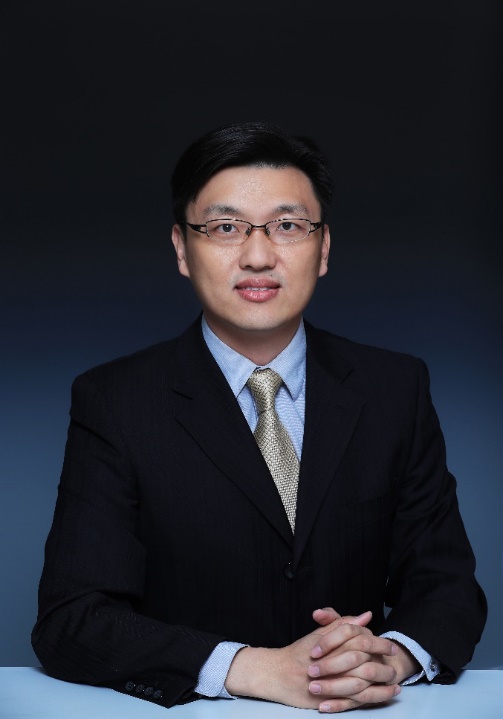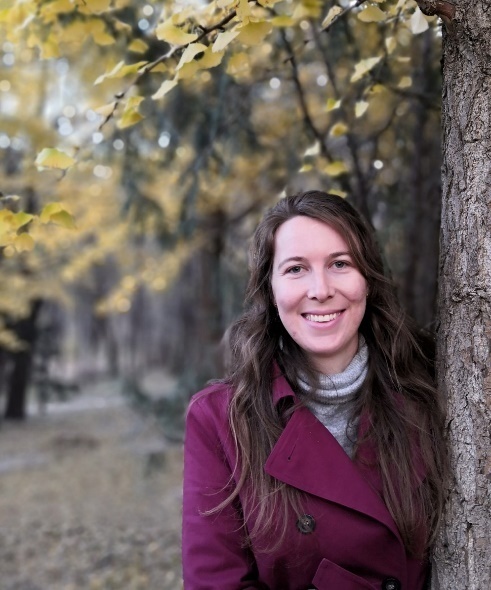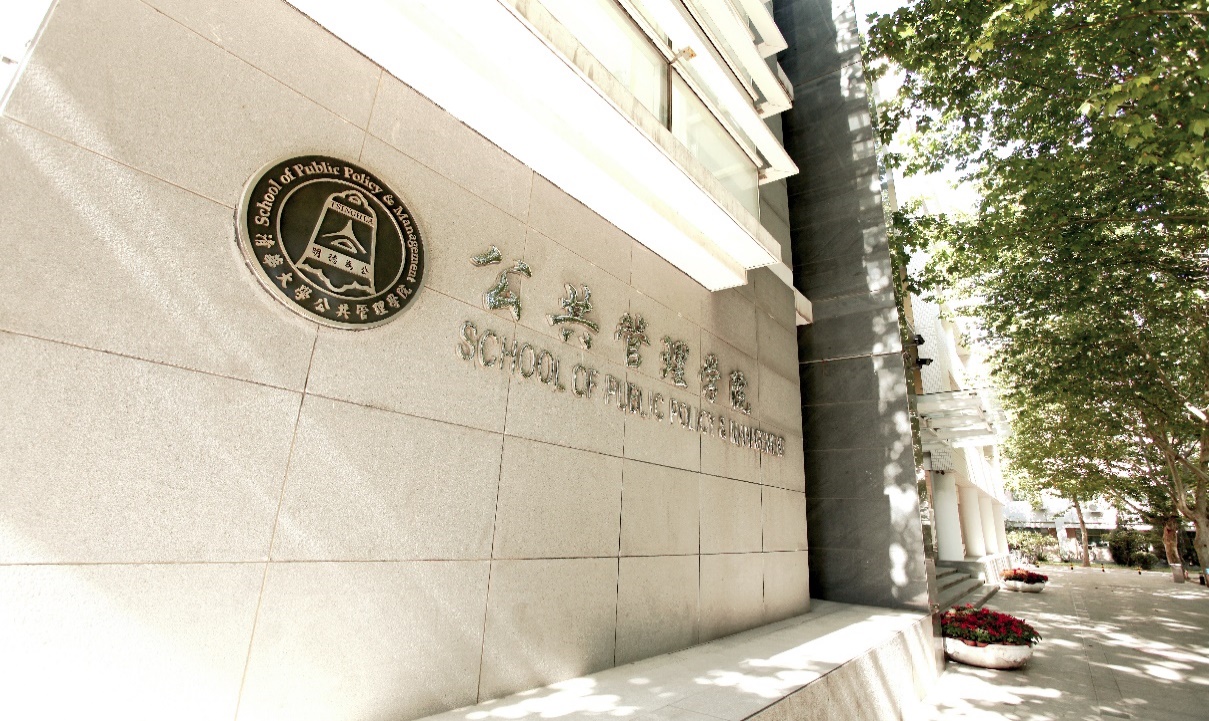2021年清華大學(xué)“創(chuàng)新可持續(xù)發(fā)展”全球暑期學(xué)校將于6月28日-7月6日舉辦。今年暑校課程增加SDG馬拉松的環(huán)節(jié)。SDG馬拉松共設(shè)置十幾個(gè)不同主題的分賽場(chǎng),學(xué)生可以根據(jù)興趣自由選擇分賽場(chǎng),現(xiàn)場(chǎng)組成跨學(xué)科創(chuàng)新團(tuán)隊(duì)(Innovation Team),針對(duì)某個(gè)領(lǐng)域與可持續(xù)發(fā)展相關(guān)的問題(Challenge),進(jìn)行解決方案(Innovative Solution)的開發(fā)。
Tsinghua University’s “Innovation for the SDGs” Global Summer School 2021 will be held from June 28 to July 6. This year, the Summer School curriculum will include a special “SDG Hackathon”. The hackathon is composed of more than 10 sub-groups, each focusing on a different theme related to the SDGs. After selecting a sub-group to join, students will form an interdisciplinary “Innovation Team” to explore, develop and present solutions for the sub-group’s “Challenge” topic.

1. 承辦院系 School/Department host
清華大學(xué)公共與管理學(xué)院
School of Public Policy & Management, Tsinghua University
2. 挑戰(zhàn)主題 Theme
政府治理對(duì)新技術(shù)的適應(yīng)與轉(zhuǎn)型
The adaption and transformation of government governance in the era of new technologies
3. 導(dǎo)語/背景情況概述 Background brief of problems to be solved
SDG 16旨在創(chuàng)建和平、包容的社會(huì)以促進(jìn)可持續(xù)發(fā)展,讓所有人都能訴諸司法,在各級(jí)建立有效、負(fù)責(zé)和包容的機(jī)構(gòu),其具體目標(biāo)之一是“在各級(jí)建立有效、負(fù)責(zé)和透明的機(jī)構(gòu)”。21世紀(jì)以來,以互聯(lián)網(wǎng)、大數(shù)據(jù)、人工智能為代表的新技術(shù)正在成為推進(jìn)政府治理體系和治理能力現(xiàn)代化的重要支撐。本議題希望探索新技術(shù)革命下政府治理體系的適應(yīng)與轉(zhuǎn)型,將治理技術(shù)的創(chuàng)新與治理機(jī)制的變革相結(jié)合,推動(dòng)實(shí)現(xiàn)可持續(xù)發(fā)展。
In the pursuit of SDG 16, which aims to promote just, peaceful and inclusive societies, the theme of this Hack focuses on developing effective, accountable and transparent institutions at all levels. In the 21st century, innovative technologies, including Internet, big data, and artificial intelligence, are becoming critical driving forces in the modernization of national governance system and capacity. This Hack seeks to explore the adaption and transformation of government governance empowered by new technologies, and aims to promote sustainable development by combining technological innovations and governance system.
4. 該領(lǐng)域比較關(guān)注的問題 Our key topics of interest
?新技術(shù)在政府公共服務(wù)與公共決策領(lǐng)域的應(yīng)用與效果
Applications and effects of new technologies in the providing of public services and public decision-making
?新技術(shù)在政府治理時(shí)遇到的瓶頸與對(duì)策
Issues faced for government governance when applying new technologies and potential solutions
?如何應(yīng)對(duì)新一輪技術(shù)革命帶來的治理挑戰(zhàn)(如立法監(jiān)管、信息安全等)
How to deal with governance challenges (eg. legislation & supervision, information security, etc.) in the face of a new wave of technological revolution
5. 主講老師 Hack Leader

朱旭峰,現(xiàn)任清華大學(xué)公共管理學(xué)院長(zhǎng)聘教授、博士生導(dǎo)師、副院長(zhǎng)、智庫(kù)研究中心主任;清華大學(xué)全球可持續(xù)發(fā)展研究院執(zhí)行院長(zhǎng)、清華大學(xué)科技發(fā)展與治理研究中心副主任。朱旭峰入選國(guó)家杰出青年科學(xué)基金、首批國(guó)家青年拔尖人才支持計(jì)劃(“萬人計(jì)劃”)、國(guó)家優(yōu)秀青年科學(xué)基金、教育部“新世紀(jì)優(yōu)秀人才支持計(jì)劃”、哈佛大學(xué)“燕京學(xué)者”,2014年榮獲“中國(guó)管理學(xué)青年獎(jiǎng)”。朱旭峰在清華大學(xué)先后獲得環(huán)境工程學(xué)士和公共管理學(xué)博士學(xué)位。研究方向包括公共政策理論、科技政策、環(huán)境與后政策、轉(zhuǎn)型與公共治理等,現(xiàn)擔(dān)任全球公共管理院校聯(lián)盟(NASPAA)SDG工作委員會(huì)聯(lián)席主席。
Xufeng ZHU is Professor and Associate Dean at the School of Public Policy and Management (SPPM) and Executive Director of the Institute for Sustainable Development Goals, Tsinghua University (TUSDG), Deputy Director of the Science & Technology Development and Governance Center, Tsinghua University (TUSTDG), and Director of the Think Tank Research Center of the SPPM. Dr. ZHU earned his bachelor’s degree in environment engineering and doctor’s degree in public management from Tsinghua University in 2000 and 2005. His research interests include public policy theories, science & technology policy, environment and climate policy, and public governance in transitional China. He serves as General Secretary of the China Public Management Association and Co-Chair of the SDG working committee of the NASPAA. He also serves as Regional Editor, Associate Editor, or Editorial board members in over ten international journals.
6. 導(dǎo)師 Mentor

周爽
周爽是C40城市氣候領(lǐng)導(dǎo)聯(lián)盟中國(guó)傳播與推廣經(jīng)理,負(fù)責(zé)C40在中國(guó)的傳播推廣策略開發(fā),為中國(guó)城市與全球城市的雙向交流搭建橋梁并識(shí)別機(jī)遇。加入C40之前,她曾擔(dān)任佳通集團(tuán)公益基金中國(guó)區(qū)項(xiàng)目經(jīng)理,通過與麻省理工斯隆管理學(xué)院和清華大學(xué)合作開展“創(chuàng)新型領(lǐng)導(dǎo)力行動(dòng)學(xué)習(xí)項(xiàng)目”凝聚跨界領(lǐng)導(dǎo)者共識(shí),為可持續(xù)發(fā)展共同探索解決方案;她還負(fù)責(zé)基金在中國(guó)和國(guó)際舞臺(tái)上的高級(jí)別活動(dòng),并協(xié)助基金會(huì)和清華大學(xué)共同發(fā)起了“清華大學(xué)東南亞中心”。在此之前,她曾在世界自然基金會(huì)中國(guó)辦公室負(fù)責(zé)生態(tài)足跡和綠色經(jīng)濟(jì)的政策研究和推廣工作。
Shuang ZHOU serves as the China Communications and Engagement Manager in C40 to develop the communications strategy and support the engagement with member cities. In this role, she supports C40 China to identify communication and high-level events opportunities and approaches, and leverages two-way communications of cities’ best practices between China and global audiences. Before joining C40, Shuang worked as China Manager of Giti Group United in Diversity Foundation. She engaged cross-sector leaders to jointly step forward and take on sustainable development challenges of conservation, education, and enterprise through “Innovative Dynamics Education and Action for Sustainability (IDEAS)” leadership programs with MIT Sloan and Tsinghua University. She also led the Foundation’s major high-level events and supported the Foundation along with Tsinghua University to initiate the Tsinghua Southeast Asia Center. Previously, Shuang worked in the WWF China office on policy research and advocacy, focusing on promoting the Ecological Footprint concept and Green Economy to policy makers as well as wider stakeholders.

Madeleine King
來自澳大利亞的Madeleine King(麥荻)是清華大學(xué)國(guó)際合作與交流處的項(xiàng)目主管。最初她來到中國(guó)時(shí),是因?yàn)閷?duì)學(xué)習(xí)漢語感興趣。中文作為她澳大利亞國(guó)立大學(xué)亞太研究專業(yè)學(xué)士學(xué)位的一部分,麥荻分別在臺(tái)北和北京交換學(xué)習(xí)中文3個(gè)月與1年。在中國(guó)生活后,麥荻對(duì)中國(guó)的發(fā)展和社會(huì)越來越感興趣,于是決定在我國(guó)繼續(xù)深造。2015年,她在清華大學(xué)公共管理學(xué)院的國(guó)際發(fā)展項(xiàng)目攻讀碩士學(xué)位。在學(xué)習(xí)期間,她在不同的組織參加實(shí)習(xí),比如兒童基金會(huì)和世界自然基金會(huì)。她還在院系與同學(xué)合伙規(guī)劃組織一個(gè)定期的有關(guān)中國(guó)的紀(jì)錄片與影視的觀看與研討活動(dòng),以幫助她的同學(xué)們更多地了解中國(guó)的發(fā)展與社會(huì)狀況。麥荻目前在清華的國(guó)際學(xué)生學(xué)者中心工作,她熱衷于促進(jìn)中外學(xué)生學(xué)者交流與文化融合,并可以利用自己在中國(guó)留學(xué)與生活工作的經(jīng)驗(yàn),更好地幫助我校的國(guó)際學(xué)生更多地參與和融入校園生活和社會(huì)生活。
Madeleine King, from Australia, is a program manager at the Tsinghua University Office of International Affairs. It was an interest in the Chinese language that initially led her to China. As part of her Chinese language-major in her Bachelor of Asia-Pacific Studies at the Australian National University, Madeleine undertook a 3-month and 1-year language exchange at universities in Taipei and Beijing, respectively. After her experience living in China, Madeleine became greater interested in Chinese development and society, and decided to return to China to undertake further study. In 2015, she enrolled in a 2-year Master’s program in International Development at the Tsinghua University School of Public Policy and Management in Beijing. During her studies, she completed internships at different organizations, including at UNICEF and the World Wildlife Fund. She also co-established a regular Chinese movie watching event in her department to help her classmates greater learn about Chinese development. In her current role at the International Students & Scholars Center at Tsinghua, Madeleine is passionate about fostering integration between Chinese and international students, and is able to harness her own experience being an international student in China to help Tsinghua international students be more involved and engaged in campus life and greater society.

劉笑宇
劉笑宇,世界自然基金會(huì)(瑞士)北京代表處,能源轉(zhuǎn)型,高級(jí)項(xiàng)目專員。長(zhǎng)期從事可持續(xù)發(fā)展相關(guān)科技項(xiàng)目協(xié)調(diào)與管理,目前主要負(fù)責(zé)地方能源轉(zhuǎn)型及建筑、 交通等領(lǐng)域高比例可再生能源應(yīng)用推廣工作。在加入世界自然基金會(huì)之前,曾先后 就職于央視國(guó)際網(wǎng)絡(luò)有限公司、科技部中國(guó) 21 世紀(jì)議程管理中心。作為中方協(xié)調(diào)員 參與聯(lián)合國(guó)開發(fā)計(jì)劃署(UDNP)“中非可再生能源技術(shù)轉(zhuǎn)移”國(guó)際合作項(xiàng)目管理,有 關(guān)成果獲得中國(guó)可再生能源學(xué)會(huì)科學(xué)技術(shù)進(jìn)步二等獎(jiǎng)。參與籌備建立的“技術(shù)轉(zhuǎn)移南 南合作中心”獲得聯(lián)合國(guó)第八任秘書長(zhǎng)潘基文親筆題詞。
Ms. Xiaoyu Liu is the Senior Program Officer of Energy Transition to 100% Renewable Department at the World Wide Fund for Nature (WWF) Beijing Office. She has spent over 6 years on sustainable development project coordination and promotion. Her current responsibility at WWF China included energy transition at the sub-national level, and the application and promotion of high proportion renewable energy in buildings, transportation and other sectors. Prior to WWF, she worked successively in China Network Television, and the Ministry of Science and Technology - The Administrative Center for China’s Agenda 21 (ACCA21). As the ACCA21 project coordinator in China, she participated in the management of the United Nations Development Program (UNDP) "China-Ghana/Zambia Renewable Energy Technology Transfer" project, which won the Second Prize of Science and Technology Progress of China Renewable Energy Society. She also participated in the establishment of the "Technology Transfer South-South Cooperation Center", which received an inscription by Ban Ki-moon, the 8th Secretary-general of the United Nations.
7. 承辦院系介紹 Introduction of School/Department host
清華大學(xué)公共管理學(xué)院成立于2000年。學(xué)院致力于打造具備國(guó)際化視野的卓越師資隊(duì)伍,現(xiàn)有教師60余人,現(xiàn)職教師全部具有海外學(xué)習(xí)和研修經(jīng)歷。2013年我院MPA項(xiàng)目成為美國(guó)之外全球首例通過公共管理院校聯(lián)合會(huì)(NASPAA)國(guó)際認(rèn)證的公共管理碩士項(xiàng)目,2017年全國(guó)公共管理一級(jí)學(xué)科評(píng)估結(jié)果為A+。學(xué)院已經(jīng)形成了學(xué)術(shù)型碩、博士,本科二學(xué)位和公共管理專業(yè)碩士(MPA)等中文教學(xué)項(xiàng)目,國(guó)際發(fā)展碩士(MID)、國(guó)際公共管理碩士(IMPA)、國(guó)際發(fā)展與治理碩士(MIDG)、可持續(xù)發(fā)展公共政策雙碩士(MPP-SDG)、大數(shù)據(jù)下的公共政策與全球治理雙碩士(MPA-BDG)、“一帶一路”國(guó)際公共管理碩士(IMPA-BRI)以及未來領(lǐng)袖國(guó)際公共管理碩士(IMPA-FL)等英文教學(xué)項(xiàng)目。
The School of Public Policy and Management (SPPM) of Tsinghua University was founded in 2000 and is the first graduate school of public administration in China. The School’s mission is to become a world-class institution that actively engages in teaching, research, and consultation of global public affairs. In 2013, the school’s MPA program became the first internationally certified public management master’s program by the Network of Schools of Public Policy, Affairs, and Administration (NASPAA) outside the United States. In 2017, the professional degree education of public administration at Tsinghua University was awarded A+.
Over the last 20 years, the school has built a diverse, interdisciplinary faculty team, which currently consists of over 60 faculty members working in the fields of public policy and governance, public management, NGO studies, and global governance. The school currently offers four programs taught in Chinese, including Master of Management, Doctoral, Master of Public Administration, Minor Bachelor’s Degree programs, and seven Master’s programs taught in English, including MPA in International Development (MID), International MPA (IMPA), MPA in International Development and Governance (MIDG), Master of Public Policy for Sustainable Development Goals (MPP-SDG), IMPA in Big data for Public and Global Governance (IMPA-BDG), IMPA in the Belt and Road Initiative (IMPA-BRI) and IMPA for Future Leaders (IMPA-FL) program.
Tsinghua University’s “Innovation for the SDGs” Global Summer School 2021 will be held from June 28 to July 6. This year, the Summer School curriculum will include a special “SDG Hackathon”. The hackathon is composed of more than 10 sub-groups, each focusing on a different theme related to the SDGs. After selecting a sub-group to join, students will form an interdisciplinary “Innovation Team” to explore, develop and present solutions for the sub-group’s “Challenge” topic.
